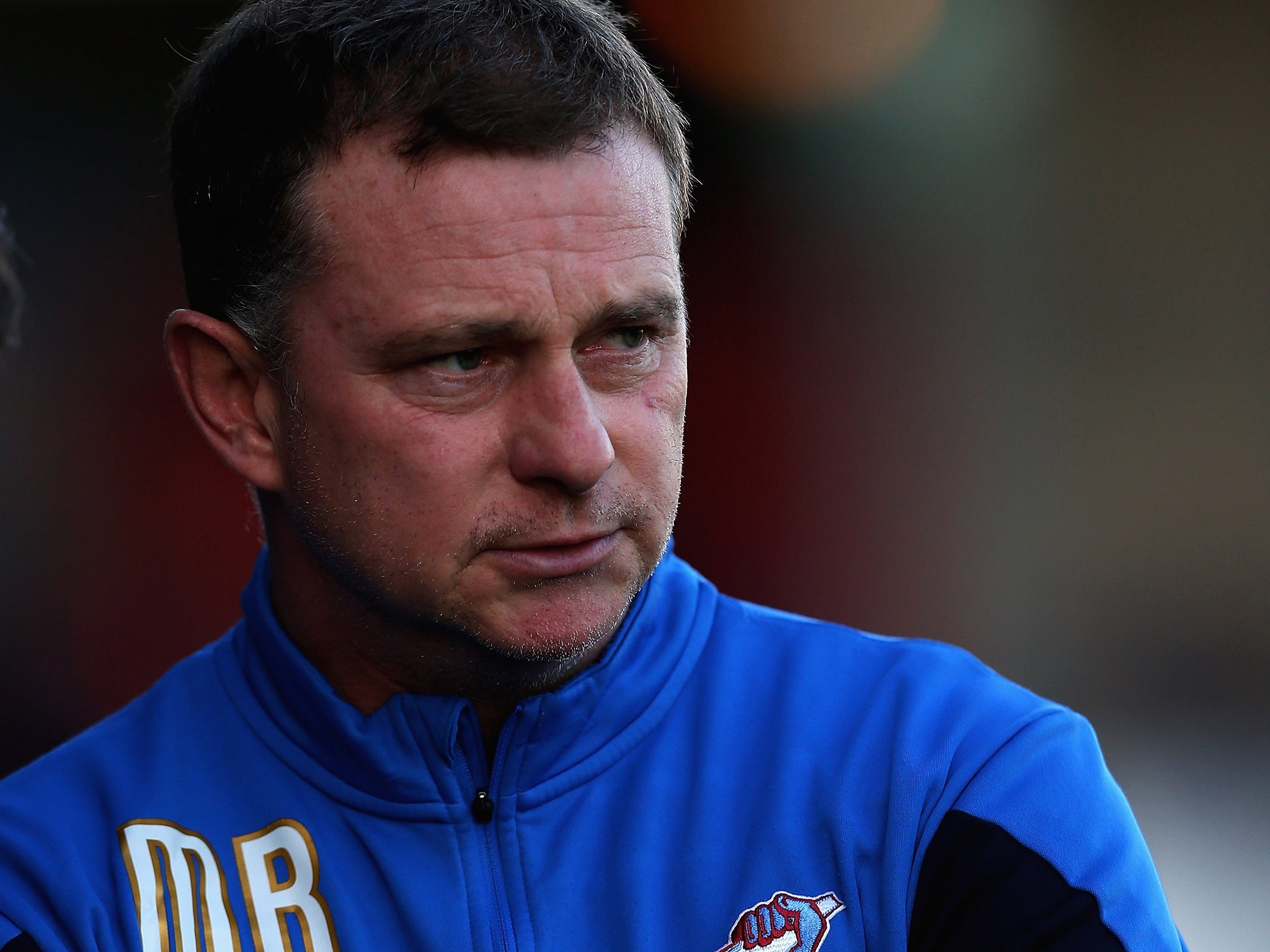Simon Hart: The man who rescued Sir Alex Ferguson's career is now occupied with resurrecting Scunthorpe's fortunes
Life Beyond the Premier League

Your support helps us to tell the story
From reproductive rights to climate change to Big Tech, The Independent is on the ground when the story is developing. Whether it's investigating the financials of Elon Musk's pro-Trump PAC or producing our latest documentary, 'The A Word', which shines a light on the American women fighting for reproductive rights, we know how important it is to parse out the facts from the messaging.
At such a critical moment in US history, we need reporters on the ground. Your donation allows us to keep sending journalists to speak to both sides of the story.
The Independent is trusted by Americans across the entire political spectrum. And unlike many other quality news outlets, we choose not to lock Americans out of our reporting and analysis with paywalls. We believe quality journalism should be available to everyone, paid for by those who can afford it.
Your support makes all the difference.It is a quarter of a century ago and that young Manchester United striker is now the 45-year-old manager of Scunthorpe United but Mark Robins is resigned to the fact that, to many people, he will forever be The Man Who Saved Fergie’s Job.
It was in January 1990 that his winning strike in an FA Cup third-round tie at Nottingham Forest provided the platform for the under-pressure Alex Ferguson’s first triumphant Cup run at Old Trafford. It is a long time ago, but as he tells The Independent, “you never get sick and tired of hearing about goals you score”.
He adds: “That was one of the first goals in my first-team career and was a special moment. I had only just turned 20 and it was a goal that was important because it won a game. Down the years it has turned into something slightly different.”
If happy to reminisce, Robins notes wryly that “there was a bit in between me scoring the goal and then finishing” a playing career that took in 12 other clubs, including sides in Denmark, Spain and Greece. “I won trophies and enjoyed my time and learned a hell of a lot,” he adds, and now he is putting those lessons to use in a managerial career flourishing once more since his appointment at Scunthorpe in October.
Robins began the season as the Football League’s first managerial casualty –sacked by Huddersfield after a 4-0 opening-day loss to Bournemouth – but since taking charge at Glanford Park he has inspired a run of two defeats in 15 matches for the League One club. Last weekend’s 4-1 win at Walsall means they go into tomorrow’s home meeting with leaders Bristol City having taken 17 points from their last 21 matches.

“The club was [second] bottom of the league [but] we have managed to get ourselves together and the players have bought into what we are trying to do,” says Robins. He has already recruited wisely with loan players – including Chelsea defender Alex Davey and West Bromwich Albion midfielder Liam O’Neil – and his choice of former Irish international David “Ned” Kelly as his No 2, but the key piece of the jigsaw, he notes, is Scunthorpe owner Peter Swann, a man with a “real passion for taking this club forward”.
On Monday, the Lincolnshire club submitted a planning permission application for a new £18m stadium and training facility. Swann hopes that the revenue generated by a seven-day-a-week community stadium will help Scunthorpe become an established Championship side, and Robins is optimistic that the “fresh impetus” could help him build something substantial after a peripatetic managerial career to date.
From Rotherham to Barnsley to Coventry to Huddersfield – whom he took to “a 14-season high [of 17th in the Championship] last season” – Robins has never stayed more than two years at a club. With hindsight, he might have remained longer at Rotherham, where he cut his teeth as a manager from 2007 to 2009. “Starting the season on minus 17 wasn’t great, we lost the stadium, we lost the training ground,” he recalls of those early challenges and he “can see a similarity between what the chairman is trying to do here and what Tony Stewart did at Rotherham. They were on a similar journey and that’s what has attracted me back to this.” And if some Scunny fans question the wisdom of a 12,000-capacity ground for a club that averaged 4,312 last term, Robins points to Rotherham who “had about 3,000 core supporters” and yet averaged 8,450 in 2013-14 at their New York Stadium.
It was the lure of the Championship that led Robins to leave first Rotherham and later Coventry – where he had five successful months before joining Huddersfield – and while Scunthorpe, promoted from League Two last May, sit 17th in League One, Robins hopes to be back there before long with The Iron. “The club has got history in terms of being able to get promoted. We are just trying to do it in the right way with being prudent, not overspending but also having the knowledge. The chairman eventually would like to try and get up [there].” Swann believes Robins can be the catalyst for that success; it is a role, you might remember, he has filled before.
Join our commenting forum
Join thought-provoking conversations, follow other Independent readers and see their replies
Comments